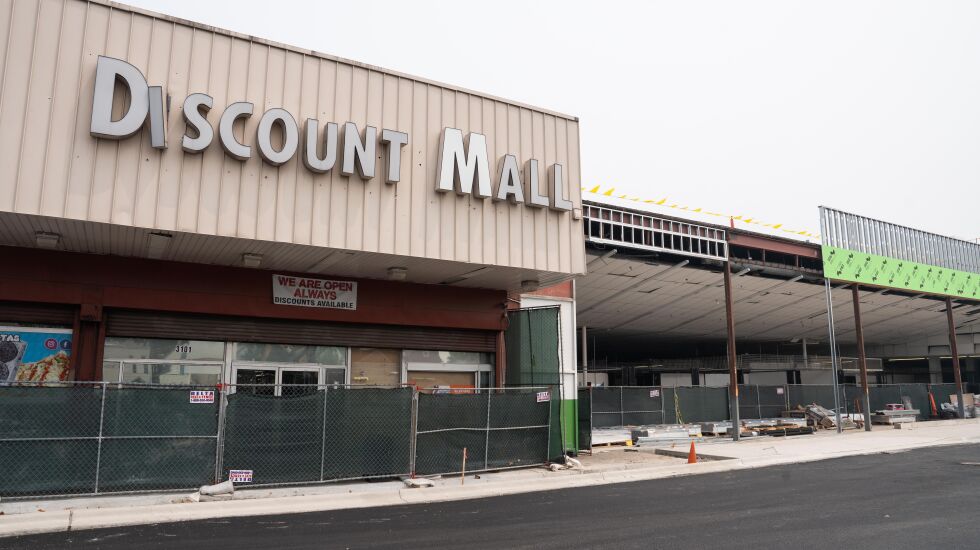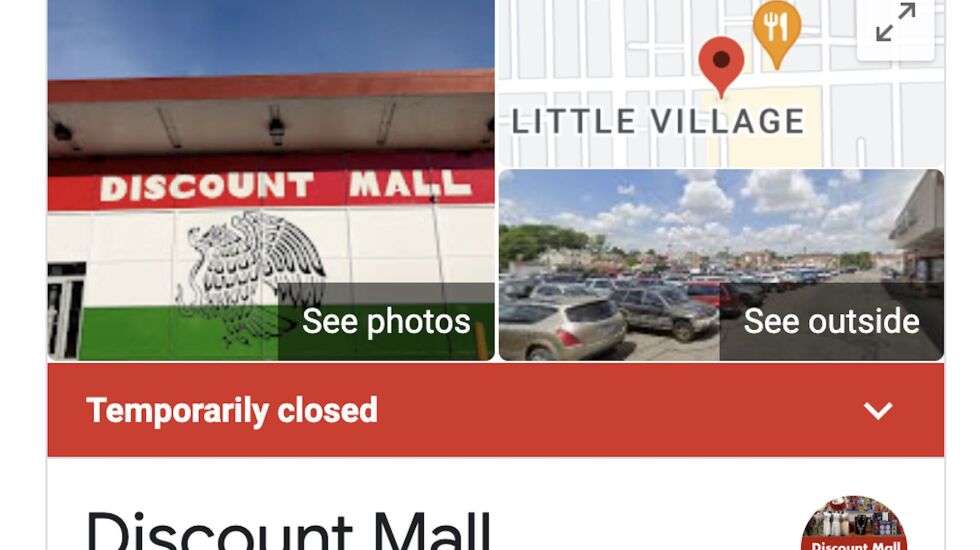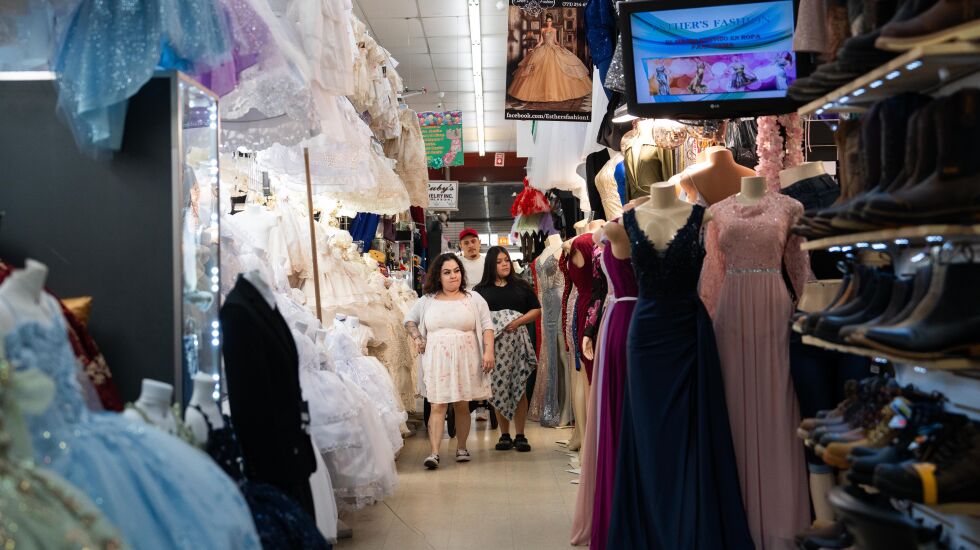
When half of the Little Village Discount Mall closed in March, Daniela China felt lucky her stall was on the side of the mall that remained open, but she had a sense then that things still wouldn’t end well.
“I was very grateful,” she said, “but I did have many concerns, because we all work as a team.”
China was one of dozens of vendors able to keep operating at the mall near 26th Street and Albany Avenue after their management company, signed a new lease agreement with property owner Novak Construction. (The management company representing the departed business owners had been unable to strike a new deal.)
Despite the apparent new lease on life, things haven’t been the same. Sales at China’s traditional Mexican clothing store and perfume shop have declined by 80% in the past three months, she said.
“I knew this was going to happen, that our business was going to decline,” said the Chicago native.

Many vendors still operating at the iconic mall said they have seen similar declines.
Tiem Luu and Norma Castillo, longtime vendors at the mall, estimate business at their clothing store has declined by about 50%.
Both attributed the decline to ongoing construction at the property, as well as persistent rumors that the entire mall had closed.
“A lot of things happened,” said Luu, 54. “Construction, no parking, customers getting booted.”
Some signs on 26th Street reiterate that the mall remains open, but it looks more like a construction site.
A temporary fence surrounds much of the parking lot, reducing the number of spaces. And the rumble of construction vehicles drowns out any other sound.

The biggest decline, Castillo said, has come from the loss of out-of-state customers.
“These people coming from out of state, they don’t know, they think the whole mall is closed,” she said.
Since opening in 1991, the mall has attracted shoppers from around the Midwest looking for authentic Mexican products.
However, Castillo said, if these same shoppers now look up directions for the mall on Google Maps, it is shown as “temporarily closed.”

The vendors reached out to Google about two months ago to correct the error, and it briefly showed up again as “open.” But it didn’t last.
According to the website the closure was “confirmed by this business three weeks ago.”
The loss of some of the unique businesses from the other side of the mall has also dissuaded shoppers from returning, China said.
Those vendors who had to leave are still in the process of figuring out where to begin operating next.
The decline in business has hit the rest of the 26th Street corridor as well, said Jennifer Aguilar, the head of the Little Village Chamber of Commerce.
Aguilar, local Ald. Byron Sigcho-Lopez (25th) and a few of the vendors held a news conference outside the mall last week to remind the public the mall remains open.
The perception that it isn’t, they said, is impacting the entire neighborhood.
“The rumors that it has closed has been very negative for small businesses along the corridor,” Aguilar said at the news conference. “They have seen less people here on the weekends and during the week.”
Shoppers used to come for the mall and then explore the area, she said. Restaurants have been hit particularly hard, she said; for some, sales are down 45%.
Some vendors said the reduced number of spaces in the parking lot, combined with fears of getting booted, also has kept some shoppers away.
Sigcho-Lopez said he would introduce an ordinance to ban booting by private companies. Also, he said, Novak could help publicize the fact that the mall is open.
He also wants to talk to Novak about what businesses will be brought in. John Novak of Novak Construction had said he planned to eventually bring in big-box retailers.
“We welcome the new businesses but not at the expense of the old,” Sigcho-Lopez said.
In the long run, many vendors aren’t sure if they’ll make it. Sales have declined precipitously just as rent has gone up.
China said her rent increased by about $1,000 per month after their management company signed with Novak, and there are plans for it to go up another $600 per month.
“I don’t know how it’s going to work with these high prices and low sales,” she said.
It’s getting to the point, she said, where she isn’t sure how she’ll provide for her son.
“We’re trying to figure out how to hold onto our business and pay our bills,” she said. “We’re going through a very hard time.”
Michael Loria is a staff reporter at the Chicago Sun-Times via Report for America, a not-for-profit journalism program that aims to bolster the paper’s coverage of communities on the South Side and West Side.








